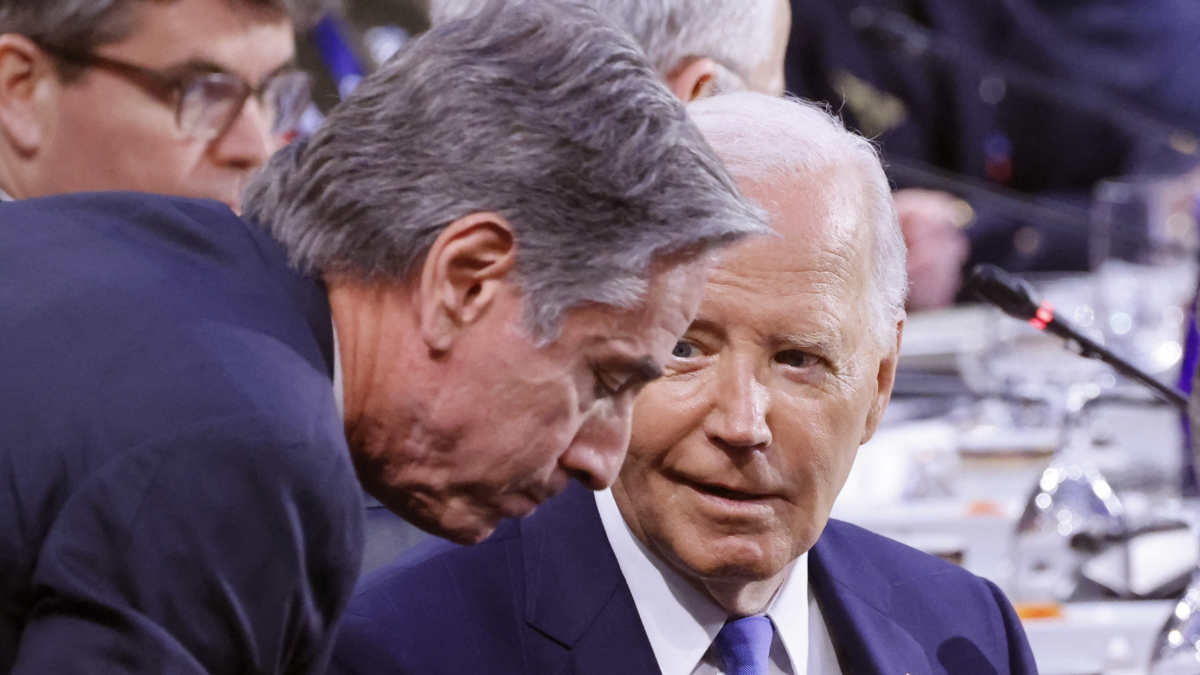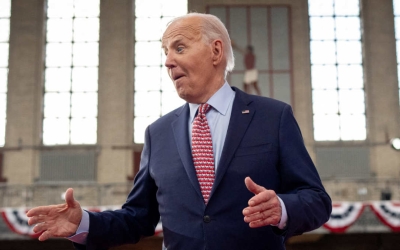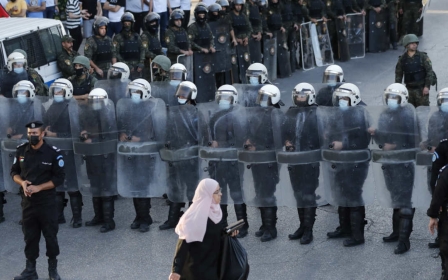US considers fresh legal bid questioning ICC jurisdiction over Israel

The US is considering a legal bid to question the International Criminal Court’s (ICC) authority in seeking arrest warrants for Israeli Prime Minister Benjamin Netanyahu and his defence minister over alleged war crimes in Gaza, Middle East Eye can reveal.
A US official briefed on the matter told MEE that the Biden administration is considering submitting an amicus curiae to the ICC, voicing its staunch opposition to the decision of the court’s chief prosecutor to seek arrest warrants for the Israeli officials, despite the US not being a signatory to the treaty that created the court.
The deliberations, not previously reported, come amid a lobbying campaign at the highest levels of the Biden administration to prevent the UK from dropping its legal appeal against the ICC.
The US official, who spoke to MEE on condition of anonymity, said US Secretary of State Antony Blinken personally asked his UK counterpart, David Lammy, to continue challenging the court’s jurisdiction over Israeli citizens.
Blinken raised the ICC case with Lammy on Tuesday on the sidelines of the Nato summit in Washington.
New MEE newsletter: Jerusalem Dispatch
Sign up to get the latest insights and analysis on Israel-Palestine, alongside Turkey Unpacked and other MEE newsletters
The readout of the meeting didn’t mention the ICC case but said the two discussed “the need to reach a ceasefire in Gaza that secures the release of hostages and lays the groundwork for durable peace”.
The Biden administration’s lobbying has picked up pace because Keir Starmer’s new Labour government faces a 26 July deadline on whether to pursue the challenge that the country’s former conservative government initiated.
"We don’t comment on purported leaks," a US State Department spokesperson told MEE after publication of this report when asked to comment on whether the administration was considering a legal bid to weigh in on the ICC's jurisdiction over Israel.
Biden struggles for response to ICC
The ICC allows an amicus curiae to be filed by a state, NGO or an individual. It's unclear whether it will sway the ICC, which has submitted its own amicus curiae to the US Supreme Court in the past. The ICC has the discretion to invite parties it considers to have an interest in a particular case to submit an opinion.
Unlike the UK, the US is not a signatory to the Rome Statute, which established the ICC in 2002.
Congress has also imposed laws to limit US support for the court. It carved out an exception that allowed the Biden administration to cooperate with the court on its war crimes case against Russia.
Any US decision to officially assert its opposition to the move is likely to be symbolic.
The Biden administration has made no secret of its objection to the court’s decision to seek arrest warrants for Netanyahu and Israeli Defence Minister Yoav Gallant, alongside senior Hamas officials in the Gaza Strip.
"The ICC prosecutor’s application for arrest warrants against Israeli leaders is outrageous. And let me be clear: whatever this prosecutor might imply, there is no equivalence - none - between Israel and Hamas. We will always stand with Israel against threats to its security," a White House statement said after the ICC announced it was seeking the warrants.
Blinken also said that the ICC’s chief prosecutor snubbed Israeli overtures to work with the court on its investigation. The US felt particularly blindsided because it was working to coordinate the visit. Chief prosecutor Karim Khan’s office said Israel never approved his fact-finding mission.
"Our position on the ICC's jurisdiction in this situation is well-known," a State Department spokesperson told MEE when asked for comment on this report.
Biden has come under intense pressure from Republican and Democratic lawmakers to oppose the ICC. Despite harsh statements and backroom lobbying, it has struggled to craft a response - in part because it has pitched itself as defending international institutions compared to former US President Donald Trump.
At a Senate hearing in May, Blinken told lawmakers he would “welcome working with you” on sanctioning the ICC.
The administration was forced to make a U-turn shortly after, amid backlash from Democratic lawmakers. The decision appeared to leave Israel confused. Netanyahu said he was “disappointed” by the news.
Middle East Eye delivers independent and unrivalled coverage and analysis of the Middle East, North Africa and beyond. To learn more about republishing this content and the associated fees, please fill out this form. More about MEE can be found here.





